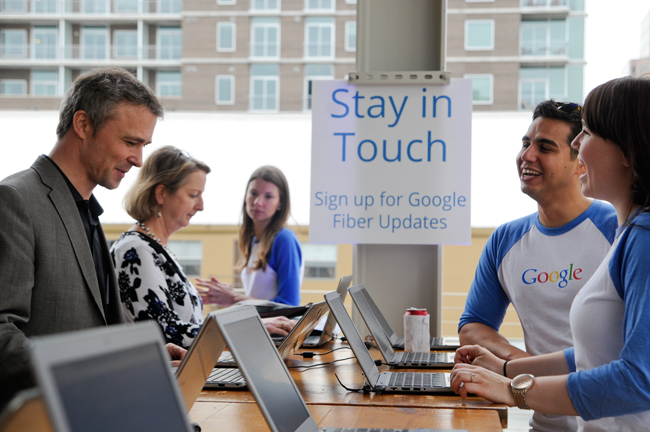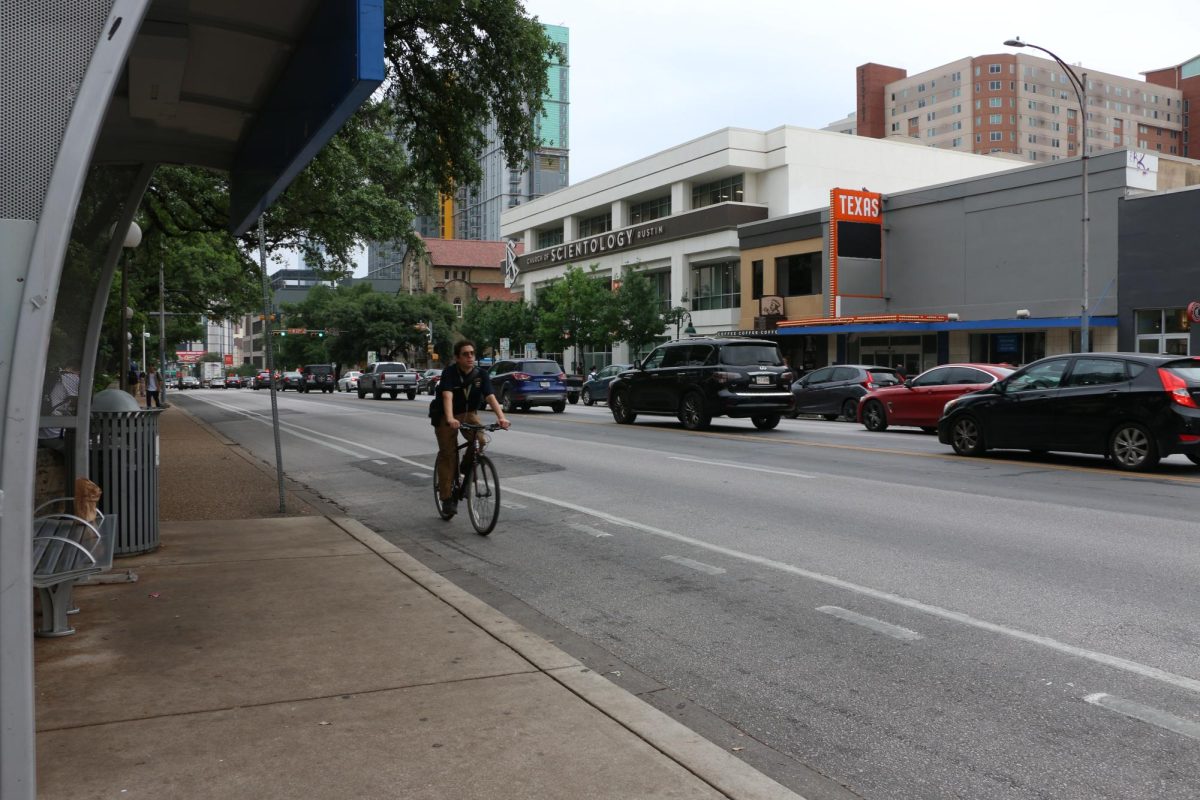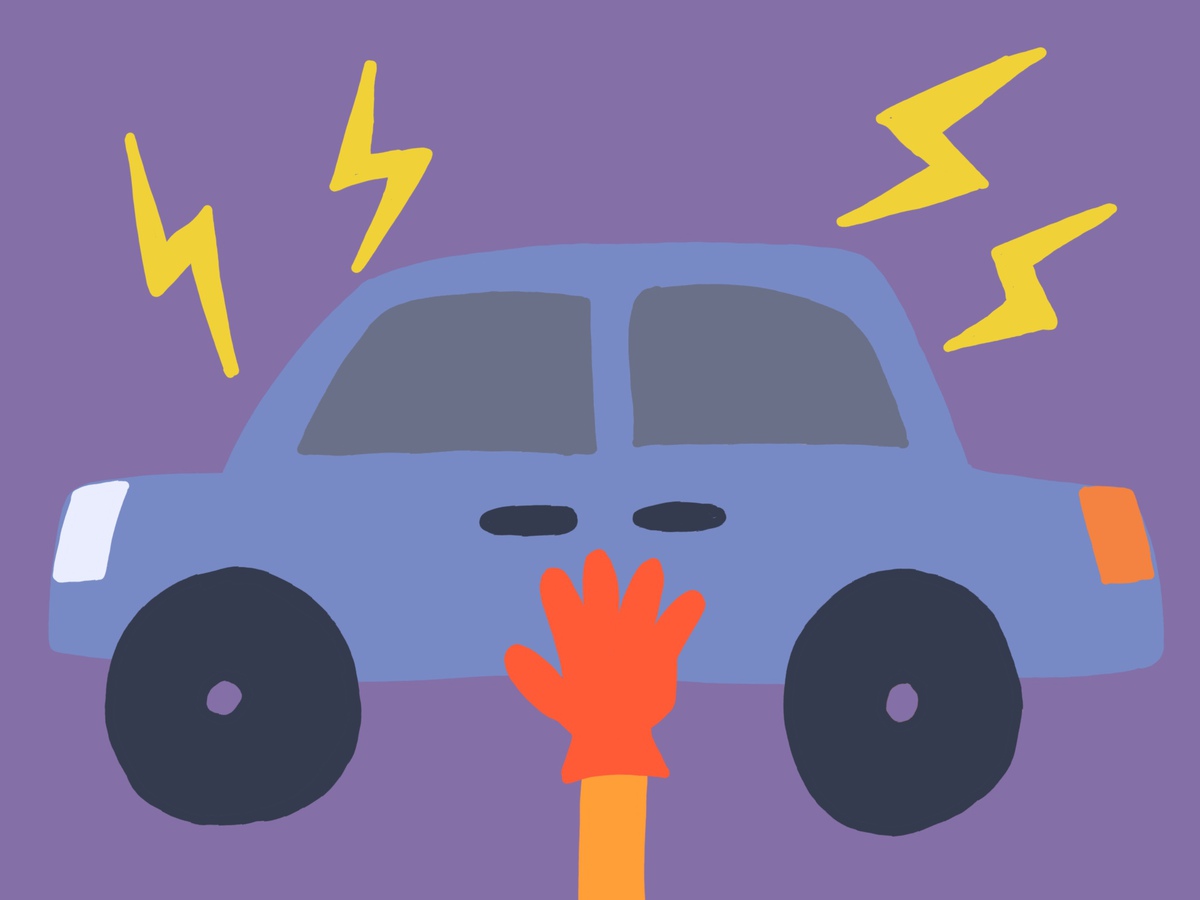Google Fiber will bring Austin residents and UT students access to some of the world’s fastest internet speeds in 2014, challenging Austinites to find ways to use the service at its full potential.
Google Fiber is a project that provides fiber-optic broadband internet and TV service to customers at a rate of up to 1 gigabit per second. This is 100 times faster than most connections today, according to the Google Fiber website.
City of Austin and Google officials announced to members of press and invited guests that Austin would be the second city to receive Google Fiber on Tuesday at Brazos Hall. Distinguished speakers at the event included Gov. Rick Perry, Mayor Lee Leffingwell and Council Member Laura Morrison.
Starting in mid-2014, the service will be provided in select communities called “fiberhoods” depending on the level of interest in those areas. Kevin Lo, general manager of Google Fiber, said pricing has not been determined for Austin yet, but residents can look to the current Kansas City price model for an idea of what to expect. Kansas City, Kan. was the first city to be chosen to receive the service, edging out Austin in the 2011 application process.
Kansas City residents can currently choose from three plans, which range from free internet with only an installation fee all the way to gigabit internet and TV for $120 per month. Google Fiber’s HDTV channel options will include the Longhorn Network.
William Green, director of Networking and Telecommunications for UT’s Information Technology Services, said the University will take full advantage of Google Fiber, though the details are currently unknown.
“The University plans to take advantage of this wonderful opportunity to connect with the community at the highest speeds offered,” Green said. “Students, faculty and staff already have high-speed capabilities when they are on campus — the new use cases when they have those same capabilities through Google Fiber off campus will be interesting. “
Milo Medin, vice president of access service for Google, said residents living in high-density spaces such as apartment complexes will need permission from apartment owners to install the service.
“We have programs with multiple-dwelling unit owners,” Medin said. “Because of the way U.S. regulation works, we can’t just install in an apartment building without the apartment building owner’s permission. So we have a program where apartment building owners can sign up, have us come in and wire Fiber for all their units, and then be able to deliver services there.”
Tech bloggers, such as Farhad Manjoo from Slate Magazine, have questioned whether the utility of Google Fiber has truly been realized beyond the scope of faster uploads and downloads, calling the service “totally awesome, and totally unnecessary.”
“During my time in Kansas City, I spoke to several local businesspeople, aspiring startup founders and a few city boosters,” Manjoo wrote on March 12. “They were all thrilled that Google had come to town, and the few who’d gotten access to the Google pipe said they really loved it. But I couldn’t find a single person who’d found a way to use Google Fiber to anywhere near its potential — or even a half or quarter of what it can do.“
Morrison said the campaign “Big Gig Austin” has become an online collaboration of Austin residents coming up with innovative ideas for how the service can stretch the limits of technology, and was launched during Austin’s original application to receive Google Fiber.
“We envisioned medical patients consulting with physicians in real time, sharing data and video conferencing to enhance the quality of care to Austin residents,” Morrison said at the event. “We envisioned a place where working from home was more viable thanks to reliable video connections and virtual networks, freeing us from our daily commutes and reducing our carbon footprint.”
Morrison also highlighted ideas unique to Austin, such as hosting online film and live music festivals.
Tracy King, vice president of public affairs for AT&T, said AT&T is encouraged by the ability for service providers to compete in bringing the best service to consumers. On Tuesday, the same day as the Google Fiber announcement, AT&T published a press release announcing its intent to create a 1-gigabit fiber network in Austin.
“Competition is fantastic for the consumer,” King said. “Robust competition between us and Google is a great thing. The customer ultimately gets to decide who is going to serve them better. We look forward to competing with Google.”





















